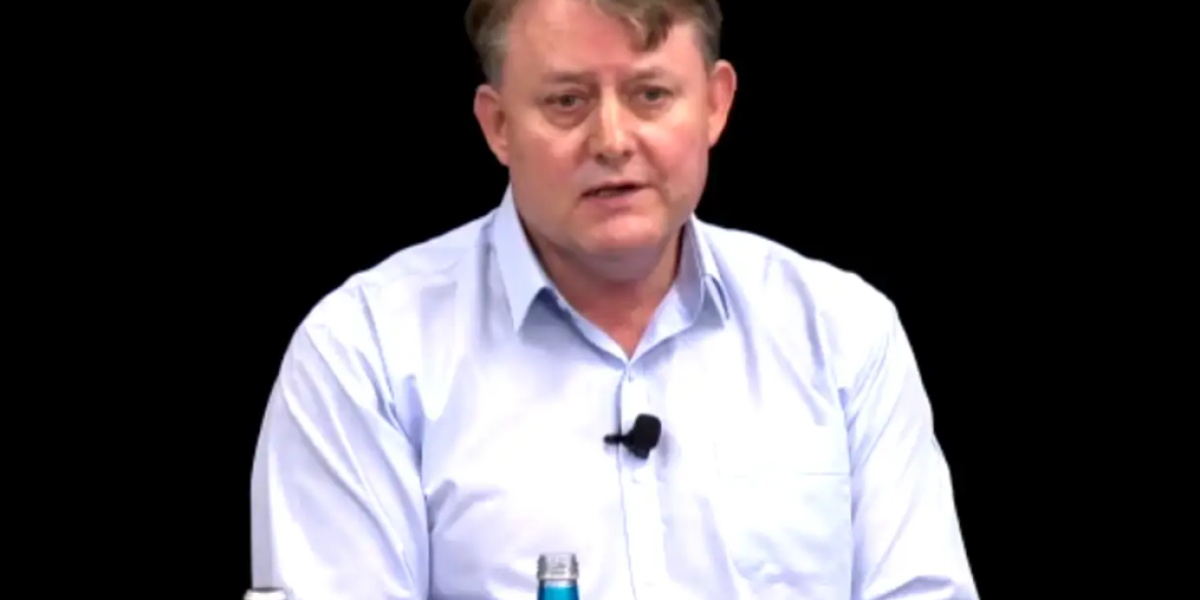|
Getting your Trinity Audio player ready...
|
– James Thomson for AFR Chanticleer
Link to the AFR original article: Why investment legend Chris Mackay says ‘it’s a dangerous time’ (afr.com)
Chris Mackay, managing director of MFF Capital Investments and co-founder of fallen Magellan Financial with Hamish Douglass, might be the most optimistic pessimist in the Australian market.
The market veteran sees traps and snares around every corner for investors: surging government debts, rising inequality, markets riven with perverse incentives, an obsession with the short term, and the likelihood that the “everything rally” that has driven returns for the best part of two years will reverse.
And yet, Mackay, who has overseen a 30 per cent increase in MFF’s share price in the last 12 months on the back of solid growth in its investment portfolio, argues this environment of risks has also ushered in “the time of greatest opportunity for many, including calm, rational, knowledge-seeking investors” who can take advantage of almost unthinkable amounts of data and information to swim against the market tide to find winners.
“We expect opportunities from cycles and negative events. We want the strongest, best companies for the future,” he says. “Over time, investments in absolute premium businesses are materially better than holding cash and bonds or weaker businesses, particularly in extended inflationary periods.”
Mackay has always been a somewhat reluctant market commentator, but MFF’s annual general meeting in Sydney on Wednesday provided a rare opportunity for investors to hear his views on the state of the group’s portfolio, and the state of the world.
But the meeting also contained some surprising news: MFF is set to acquire Sydney-based fund manager Montaka Global Investors, a firm in which Mackay and his family own a large stake, and which Mackay described as a key provider of research and insights for MFF over a long period.
The deal, which follows a spate of fund manager mergers, tie-ups and acquisitions in the Australian market, is a little different: MFF will pay only a “nominal” sum for Montaka (we take that to read basically nothing up-front), and in return will provide the firm with resources to build what Mackay describes as its exceptional research capability.
‘We want to find smaller winners’
“We want to find smaller winners,” he says, pointing to Montaka’s identification of Spotify – which has surged 137 per cent in the last 12 months – as a stock MFF should have latched onto. “I was insufficiently in touch to fully understand the capacity for that to be the leading, dominant business.”
Not that he and MFF have had a bad run. Mackay is loath to provide the sort of return data that most funds provide to clients and investors, and steers clear of comparing MFF to any benchmark, but its portfolio of blue-chip global stocks – Google and YouTube owner Alphabet is its biggest holding, followed by Amazon, Mastercard, Visa and Bank of America – has had a strong year.
MFF generated a net profit of $447.4 million for the 2024 financial year, on net assets of $1.7 billion, resulting in what MFF calls an “after-tax performance indicator” of 26.5 per cent.
The market value of its investments rose 11.1 per cent to $2.6 billion over that period, and its full-year dividend leapt 36.8 per cent. The listed investment company continues to trade at a discount of about 13 per cent to its net tangible assets, a problem that afflicts many LICs.
In some ways, Mackay’s view of the market hasn’t changed since the bear market of 2022, when MFF was able to wade into a panicked market and establish many of the positions in large, advantaged, cash-generative companies that dominate its portfolio today.
We dropped everything, assessed causes and anticipated effects, and swapped our steady selling for some buying.
— Magellan co-founder Chris Mackay
While he notes that it is fashionable for investors “to rebalance towards lesser quality businesses and demonstrably less attractive market jurisdictions” – read small- and mid-caps – he says MFF wants to remain with large advantaged winners.
Indeed, he argues that the disadvantages of scale that have previously tripped up large companies seem to be changing, providing those businesses can find adjacent pools of profits. Visa and Mastercard’s moves into data and cybersecurity are good examples.
But Mackay says life for investors isn’t getting easier. While there are still opportunities for investors such as MFF to find high-quality businesses that have been mispriced – even temporarily – by fickle markets, he says that “huge, low risk, high probability, massive margin of safety opportunities are rare, and we have not seen them recently”.
More than this though, he says the investors banking on the strong returns of the last year risk disappointment. “We expect lower overall returns from the higher starting point of today’s markets, possibly much lower.”
Mackay sees a world of rising risk, and not just in markets. After four decades during which markets rode “a sustained wave that Boomers self attribute”, we are entering a world where the current generation “must work three jobs to meet costs of living at fractions of Boomer consumption”.
Governments, he says, are responding with “anti-business, anti-growth regulations, decisions, commissions and inquiries, fines, taxes and tariffs”, and voters are favouring “populists and socialists, rejecting responsible, prudent societal growth policies”.
Among investors, “yield chasing has become rampant, with myriad promotions providing everyone with extra percentages and basis points”, while noise, and not fundamentals, move markets.
“Many trillions of dollars are misapplied on the basis of 140 ‘characters’ of false opinion, predictions of short-term unknowables, trumped-up cats and dogs of narrow ETFs, record single-day option and meme trading, agency fallacy idiocy that higher prices for illiquidity or opaque black box lock-ups better protect capital,” he says.
“Counterintuitively, very often investors can buy higher quality companies at discounts to prices paid for illiquid, inferior businesses and other assets – that is, a discount for liquidity. Looking forward, there are even greater dangers in chasing and holding illiquid assets, and most likely risk assessments should become even more important as private credit and similar gain in size.”
But Mackay questions whether this will last. “It is rational to expect that the current ‘everything rally’ will reverse, that market cycles will turn, that government fiscal ill-discipline and tariffs correlate over time with higher inflation and interest rates”.
This creates a challenge for investors in that they “must make choices, and they can’t just sit in cash”, as its value will erode over time.
Putting capital to work
The good news, Mackay says, is that pain will create opportunities. When Japan’s markets crashed 20 per cent in a day in August, sparking a brief but spectacular global sell-off, MFF got a chance to put capital to work.
“We dropped everything, assessed causes and anticipated effects, and swapped our steady selling for some buying.”
The only problem was that the rebound came within days – too soon for an investor like Mackay, who wants to own businesses for decades.
But while he does not believe markets are “in line again for huge bounces off the bottom”, there will be more chances for value investors like MFF to buy beaten-down stocks given the weakening revenue and growth outlooks that are being reported by some large business, including the likes of Nike and Estée Lauder.
“We continue to believe that sustainable secular growth will be far more unusual and more valuable over the next decade, as competition continues to ramp up and post-the-bubble unwinds, and central bank actions.
“Hence, we continue to hunt for opportunities and compare them with existing holdings.”
Source: Link to the AFR article by James Thomson




